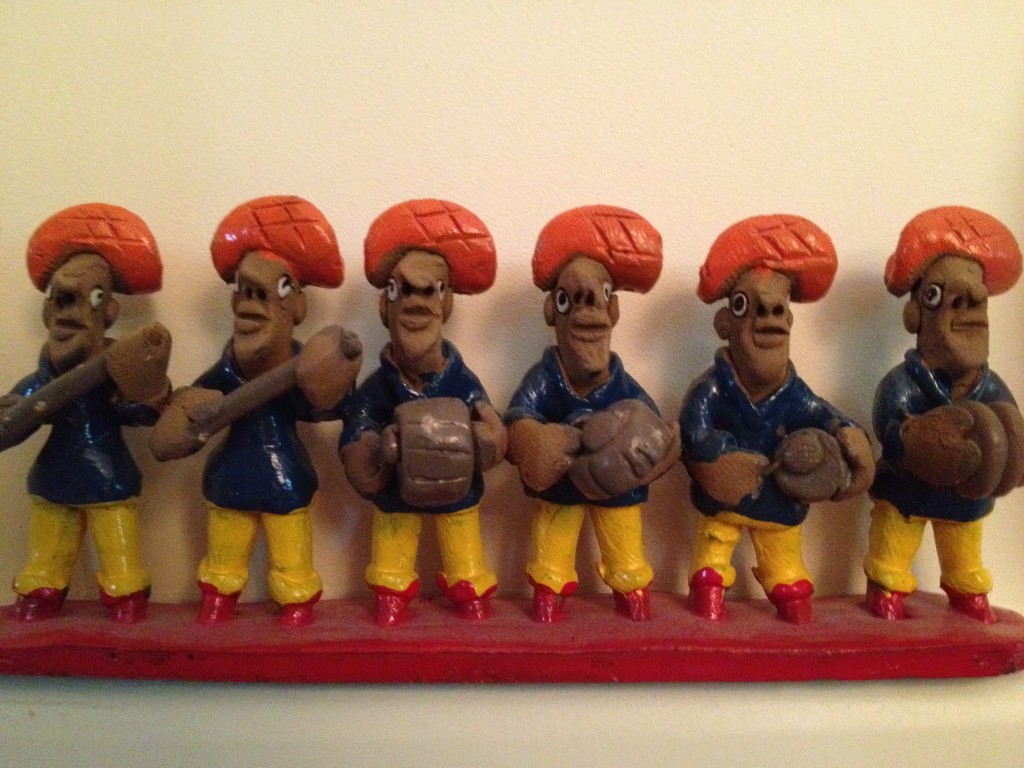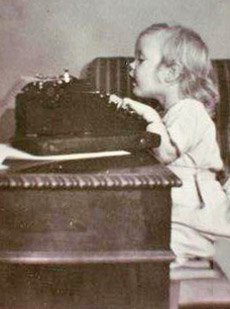Naming the Unknown
July 30th, 2014

You never know when it will grab you. You’re walking down a street you know well, a street you walk every day. Suddenly someone’s voice, drifting over a backyard fence, catches your heart, stops your breath and leaves an ache in its place.
Or a wonderful aroma, wafting from a bakery or garden, pulls you back into an earlier, seemingly sweeter time. You’re hearing your own heartbeat, then feeling the silence between beats, the faint echo of the past.
The Brazilians have a word for it – saudade. It’s so much more than nostalgia, deeper than simple memories. It’s the almost inexpressible longings that we all live with, longings that I finally put a name to when I moved to Brazil. Saudade.
I was reminded of my self-discovery on a recent trip to visit my dad. He took me to the Santa Fe Folk Arts Museum without saying why. We entered the museum (one of my favorite places to visit), walked across the familiar second-level courtyard, went through an archway. And there I was, back in Brazil. The familiar feeling of saudade was overwhelming.
The Brazilian exhibit included costumes and videos from the powerful macumba and candomblé ceremonies, moving displays of life-into-death symbols, the whimsical clay figures of everyday life which had some additions I hadn’t seen before – a lineman on an electrical pole, a man being booked into a police station and – my favorite – a patient lying on a psychiatrist’s couch.
And floating through the rooms of the exhibit, the sometimes throbbing, sometimes sobbing music of Brazil. Make no mistake, those Brazilian songs we all hum, sing and dance to are often written deep in the grip of saudade. Whether we understand the words or not, the ache of longing is another line of the music.
I might be making Brazilians sound like a people burdened with heavy feelings of sorrow. And we all know that’s not true. Anyone who’s spent a few minutes watching clips of Carnaval or the early days of the World Cup understands Brazilians do not think of themselves that way.
Yes, they have sometimes unfathomable longings they display and describe as saudade. But those same deep feelings can also bring great joy. The little clay band I brought home from Brazil, with bright orange cowboy hats and homemade instruments, is accompanied by a circle of tiny laughing dancers. Just looking at them makes me happy and brings back memories of vibrant celebrations with people who became my friends for life.
So think of saudade the next time something rings deeply in your heart. Then remember, as I try to, that for every moment of saudade, there is another moment of joy. The band is playing, the sun is shining and it is truly time to circle back to the dance of life.
 Writing Prompts
Writing Prompts
Use these phrases to start a piece of your own writing.
“…a longing for something or someone you never had.”
“…the silence between heartbeats…another line of the music.”






